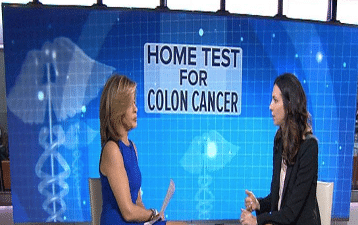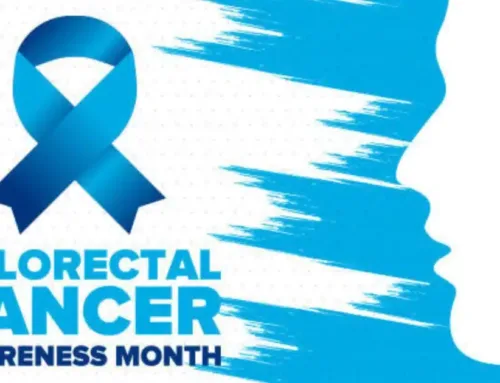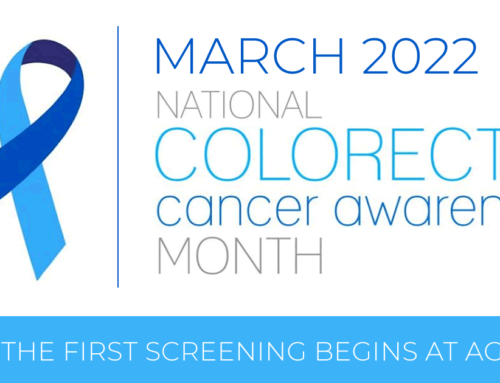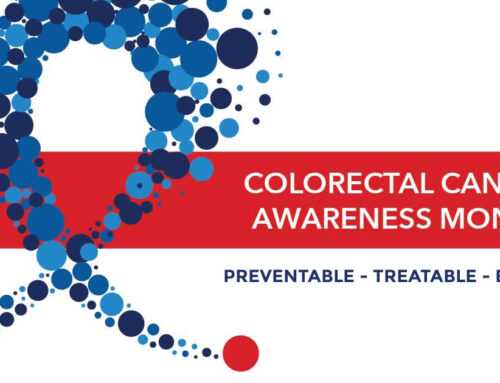Patients tend to cringe at the word “colonoscopy,” dreading the 50-year-old birthday checkup to help prevent colon cancer. Nearly one-third of adults between the ages of 50-75 have never been tested for colon cancer. Colon cancer is the third leading cause of cancer death in the United States. Avoiding this test leaves you in danger of not detecting cancer in a treatable stage.
Early detection is key: There are now over 1 million colorectal cancer survivors in the United States.
With a simple test, colon cancer can be prevented and easily treated. While the survival rate of colon cancer is 90% when detected in its early stages, patients still seem to avoid this life-saving screening test.
The Gold Standard – Colonoscopy
Colon cancer, also known as colorectal cancer, starts in the colon or rectum and can develop from polyps that grow on the inner walls of these sites. Not all polyps are cancerous, but some can turn into cancer – usually not presenting with any symptoms at all.
While a colonoscopy is the gold standard for colon cancer screening, some patients will avoid this screening test, putting them at risk for developing colorectal cancer.
As a gastroenterologist in the Fort Worth area, a focus of my practice is doing a better job of promoting awareness and dispelling some of the outdated perceptions of colonoscopies. The reason that a colonoscopy is the best colon cancer screening exam is because it enables a doctor to both detect and remove polyps during the same procedure. During a colonoscopy, patients are under sedation and experience no pain.
Risk factors for colorectal cancer include:
- Age >45 years old
- Race
- Family history of colon cancer or polyps
- Diet (low-fiber, high fat)
- Sedentary lifestyle
- History of gastrointestinal diseases (e.g. Crohn’s disease or Ulcerative Colitis)
- Diabetes
- History of alcohol abuse
- Smoking
- Obesity
Prevent Colon Cancer: The Top 3 Home Tests
Although a colonoscopy is still the best choice for detecting colorectal cancer and precancerous polyps, I know that some patients become uneasy even thinking about a colonoscopy. That’s why I’m providing a brief description of the top 3 FDA approved “at home” colon cancer screening tests for those who would prefer a different option.
1. Cologuard – Cologuard is a noninvasive, stool collection kit sent by mail to a testing lab. Results take about 2 weeks. Cologuard screens for colon cancer by testing for DNA biomarkers in your stool related to colon cancer or precancerous polyps. It’s recommended to take this test every three years.
Cologuard detects 92% of cancers and 69% of high-risk precancerous polyps.
A patient can take this test in the comfort of their own home. No dietary restrictions or bowel preparation are needed for a Cologuard.
However, patients need to be aware this test can produce both false positive and false negative results for colon cancer and precancerous polyps. This means a patient can have a positive Cologuard but when the patient goes for a colonoscopy no cancer or precancerous polyps are detected. The same goes for false negative results. A patient can have a negative Cologuard but then have a colonoscopy that finds colon cancer or precancerous polyps.
For this colonoscopy alternative, you will need to fill out a form for your doctor to order this test.
More than 85% of patients have no out-of-pocket cost for a Cologuard. It is covered by Medicare and most commercial insurance for eligible patients. Contact your insurer to confirm your eligibility for Cologuard.
UPDATE: A peer-reviewed study analyzing the efficacy and costs of Cologuard has been published in PLOS | ONE (September 2019). The key findings of the study are:
- Cologuard can detect 92% of colorectal cancers, 42% of precancerous polyps (large advanced polyps) and has a 13% false positive rate.
- Cologuard can potentially be a more expensive testing option. If you test positive, you will then need a diagnostic Colonoscopy to verify the positive test and remove polyps should they exist. A diagnostic Colonoscopy is not fully covered by private insurance or Medicare (copays and deductibles may apply), so the cost is higher for those with a positive Cologuard than if they would have used a Colonoscopy for their initial screening exam.
- For self-paying patients, you’ll need to factor in the potential cost of a positive Cologuard test along with its accuracy limitations when deciding if this is the best colon cancer screening exam for you. A positive test will require a subsequent diagnostic Colonoscopy.
- Dr. Yepuri’s summary – “This study is basically saying that a Cologuard every three years is better than nothing but that compared to nearly all other screening strategies that Medicare pays for, Cologuard is inferior. While I’m in favor of increasing the participation rates in colon cancer screening, I think it is important to educate patients on the pros/cons of alternative testing options like Cologuard. I would encourage everyone to discuss the study findings with their doctor before deciding if Cologuard is the best colon cancer screening option for you.”
2. Fecal Immunochemical Blood Test (FIT) – FIT is a colon cancer screening method that
tests for occult (hidden) blood in your stool that suggests the presence of any precancerous polyps or colon cancer.
Studies published in the American Journal of Gastroenterology found that FIT detected colon cancer in patients 79% of the time. Conversely, 94% of patients without colon cancer had a negative FIT.
FIT tests for blood in your stool that is suggestive of colorectal cancer or precancerous polyps. This test reacts to human hemoglobin protein, which is found in human red blood cells. This distinction is key because the FIT doesn’t detect other types of blood that may be in your digestive system from your diet (like red meat). No laxatives or special diets are required for the FIT test.
What about the approximately 20% of the time that FIT doesn’t detect colon cancer? This situation occurs because FIT can’t detect a precancerous polyp that is not actively bleeding. So for your FIT to be successful, you have to send in multiple stool samples. Testing every year is recommended.
FITs can be found online at low cost or your doctor can order a test for you. Most FIT tests are covered by insurance, but you should first check your insurer to confirm.
3. Fecal Occult Blood Test (FOBT) – The FOBT is another noninvasive stool test kit for colon cancer that requires samples from three different bowel movements. Consults Diagnostics uses a plant-based paper called guaiac, which allows for early detection of even smaller amounts of blood in the stool.
Consults Diagnostics FOBT test shows results in just 30 seconds, but compliance to test three serial bowel movements and to evaluate any change in bowel habits is recommended as well.
These tests are highly sensitive for blood in the stool so your doctor might advise you to discontinue NSAIDs such as ibuprofen, naproxen or aspirin as these medications may cause intestinal bleeding. Vitamin C supplements, fruit and fruit juices can also affect the chemicals in these tests causing a false negative. Red meat may cause a false positive result in your stool sample.
You can order Consults Diagnostics FOBT and it will be shipped directly to you for convenience. Contact your insurance provider to confirm coverage.
These tests are recommended for patients who are at average risk for colorectal cancer or colon polyps. If any of your test results come back positive make sure to inform your doctor so that you can have a colonoscopy to test for colorectal cancer or colon polyps.
It’s important to know that most insurance covers preventative screening colonoscopies. This is when a patient doesn’t have any gastrointestinal symptoms, they are age 50 or older, they have no personal or family history of colon polyps or colon cancer and they have not had a colonoscopy within the past year.
However, if you take an at home test and the results are positive, your colonoscopy will be “diagnostic” as it being done to investigate a medical diagnosis. In this situation, a patient’s copays and deductibles typically apply.
Is a Colonoscopy Still Necessary?
Absolutely – especially if your at home test results are positive or you’re considered high risk for colorectal cancer or colon polyps.
Also remember – precancerous polyps might not be actively bleeding at the time of your at home testing, so this test may give you a false negative result.
At the end of the day, these tests aren’t a replacement for a colonoscopy. Colonoscopies are still the most comprehensive exam that allows for visualization of the entire colon and rectum AND removal of polyps during the same session.
However, for patients who are apprehensive about a colonoscopy, the home stool based tests described above are the best alternative. If these tests can increase screening compliance and early detection for patients, I am in favor of using them.
If you are in the Fort Worth, Texas area and would like to make an appointment for a colonoscopy, or if you’re considering any of the at home tests described above, please contact my office for a consult by calling 817-267-8470 or click here to request an appointment online.






